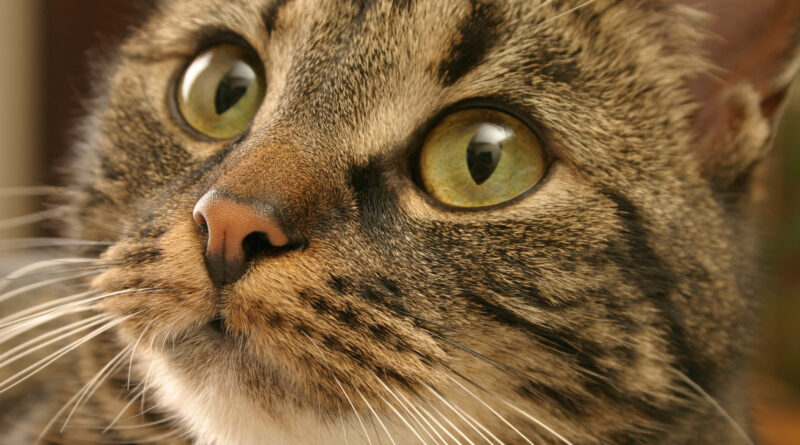Domestic Short-Haired Cat: The Charming Allure of America’s Beloved Feline Companion
In the diverse tapestry of feline companionship, the domestic short-haired cat stands as a timeless symbol of comfort, companionship, and charm. These versatile and endearing creatures have woven themselves into the hearts and homes of people across the globe, leaving an indelible mark on our lives. With their captivating personalities, unique appearances, and fascinating histories, domestic short-haired cats have rightfully earned their place as one of the most cherished members of the feline family.
Origins and Characteristics
The term “domestic short-haired cat” is often used as an umbrella term for cats of mixed ancestry that share certain traits, regardless of their lineage. These cats are known for their distinctive short coats that come in an array of colors and patterns, adding to their visual allure. Their appearances are as varied as the personalities that lie beneath those silky coats. The Domestic Short-Haired cat showcases an incredible diversity in terms of color, pattern, and even body type, making each cat a unique work of art in its own right.
One of the most captivating aspects of domestic short-haired cats is their unique personalities. While their genetics may vary, there are some general characteristics that are commonly associated with this breed. These cats tend to be highly adaptable, making them well-suited for various living environments. Whether they reside in bustling city apartments or peaceful countryside cottages, domestic short-haired cats often find ways to fit seamlessly into their surroundings. Their sociable nature also makes them excellent companions for families, singles, and the elderly alike. They are known to form strong bonds with their human caregivers, often seeking out their company and offering affection in return.
Myths and Realities
There are a few misconceptions that surround the domestic short-haired cat. One common belief is that these cats are simply random mixed-breed cats with no specific traits. While it’s true that domestic short-haired cats don’t belong to a specific breed, this does not mean they lack distinctive traits. Their diverse backgrounds often lead to unique appearances and temperaments, making each cat a fascinating individual.
Another misconception is that these cats are low-maintenance due to their short coats. While they do require less grooming in terms of preventing matting and tangles, domestic short-haired cats still benefit from regular grooming to maintain their coat’s luster and minimize shedding. Additionally, these cats have the same basic needs as any other feline, including proper nutrition, regular veterinary care, mental stimulation, and companionship.
A Rich History
Domestic short-haired cats have a rich and storied history that intertwines with human civilization. While these cats may appear to be a modern phenomenon, their presence dates back centuries. The allure of the domestic short-haired cat lies in their roots as working cats, employed for their hunting prowess to control rodent populations in granaries, barns, and even aboard ships.
During the colonization of the New World, cats played a vital role in protecting valuable food supplies on ships. Domestic short-haired cats were essential members of maritime crews, helping to keep the vessel’s cargo safe from ravenous rats and mice. These cats adapted to a life at sea, their resilience and hunting skills making them invaluable companions on long voyages.
As time went on, these felines transitioned from their roles as working cats to cherished members of households. Their diverse backgrounds contributed to a wide range of appearances and personalities, but their ability to forge close bonds with humans remained a constant. The domestic short-haired cat’s journey from a practical working partner to a beloved household companion is a testament to its remarkable adaptability and appeal.
Caring for Your Domestic Short-Haired Cat
Caring for a domestic short-haired cat involves providing them with a loving environment that caters to their physical and emotional needs. Here are some key considerations for ensuring your feline friend leads a happy and healthy life:
- Nutrition: Providing a balanced and nutritious diet is crucial for your cat’s well-being. Consult with your veterinarian to determine the best dietary plan for your cat’s age, weight, and health condition.
- Grooming: While domestic short-haired cats have shorter coats, they still benefit from regular grooming. Brushing their fur helps prevent matting, reduces shedding, and strengthens the bond between you and your cat.
- Healthcare: Regular veterinary visits are essential to monitor your cat’s health and catch any potential issues early. Vaccinations, parasite control, and dental care should be part of their healthcare regimen.
- Enrichment: Keep your domestic short-haired cat mentally stimulated with toys, scratching posts, and interactive play. These activities help prevent boredom and promote a healthy lifestyle.
- Social Interaction: Domestic short-haired cats thrive on human interaction. Spend quality time with your cat through cuddling, playing, and gentle grooming sessions.
- Indoor Safety: Many experts recommend keeping your domestic short-haired cat indoors to protect them from potential dangers like traffic, predators, and disease. If you choose to let your cat outside, ensure it’s in a safe and supervised environment.
In Conclusion
The domestic short-haired cat’s journey from the utilitarian role of rodent controller to cherished family member highlights their adaptability, resilience, and enduring appeal. Their unique appearances and personalities, paired with their innate ability to form strong bonds with humans, make them a perfect embodiment of the feline charm that has captured our hearts for centuries. As we share our lives with these captivating creatures, we are reminded that the domestic short-haired cat is not just a pet; it is a reminder of the deep and enduring connection between humans and animals.


